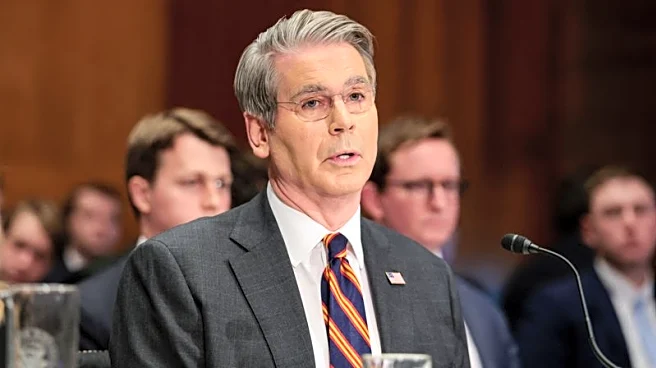What's Happening?
Taiwan is experiencing growing pressure due to changes in U.S. policy under President Trump, particularly concerning defense against China. The Trump administration's stance on Taiwan has raised concerns among Taiwanese officials, who fear a lack of commitment to defending the island. The administration's focus on reducing military spending in Europe to prioritize Taiwan has been met with skepticism, as some officials question the strategic importance of Taiwan. The debate within the Trump administration includes voices advocating for less U.S. involvement in Taiwan's defense, complicating Taiwan's security outlook.
Why It's Important?
The uncertainty surrounding U.S. policy on Taiwan has significant implications for regional security and U.S.-China relations. Taiwan's strategic position in the Indo-Pacific makes it a critical ally for the U.S. in countering Chinese influence. Any shift in U.S. commitment to Taiwan could alter the balance of power in the region, affecting global trade and security dynamics. The semiconductor industry, vital to both Taiwan and the U.S., adds another layer of complexity to the geopolitical landscape, as Taiwan's production capabilities are crucial to the global economy.
Beyond the Headlines
The Trump administration's approach to Taiwan reflects broader isolationist tendencies, which could reshape U.S. foreign policy and alliances in Asia. The debate over Taiwan's defense spending and strategic importance highlights the challenges of maintaining a coherent policy in the face of diverse political opinions. Taiwan's efforts to increase defense spending and civil preparedness indicate a proactive stance in addressing potential threats, but the island's reliance on U.S. support remains a critical factor in its security strategy.











